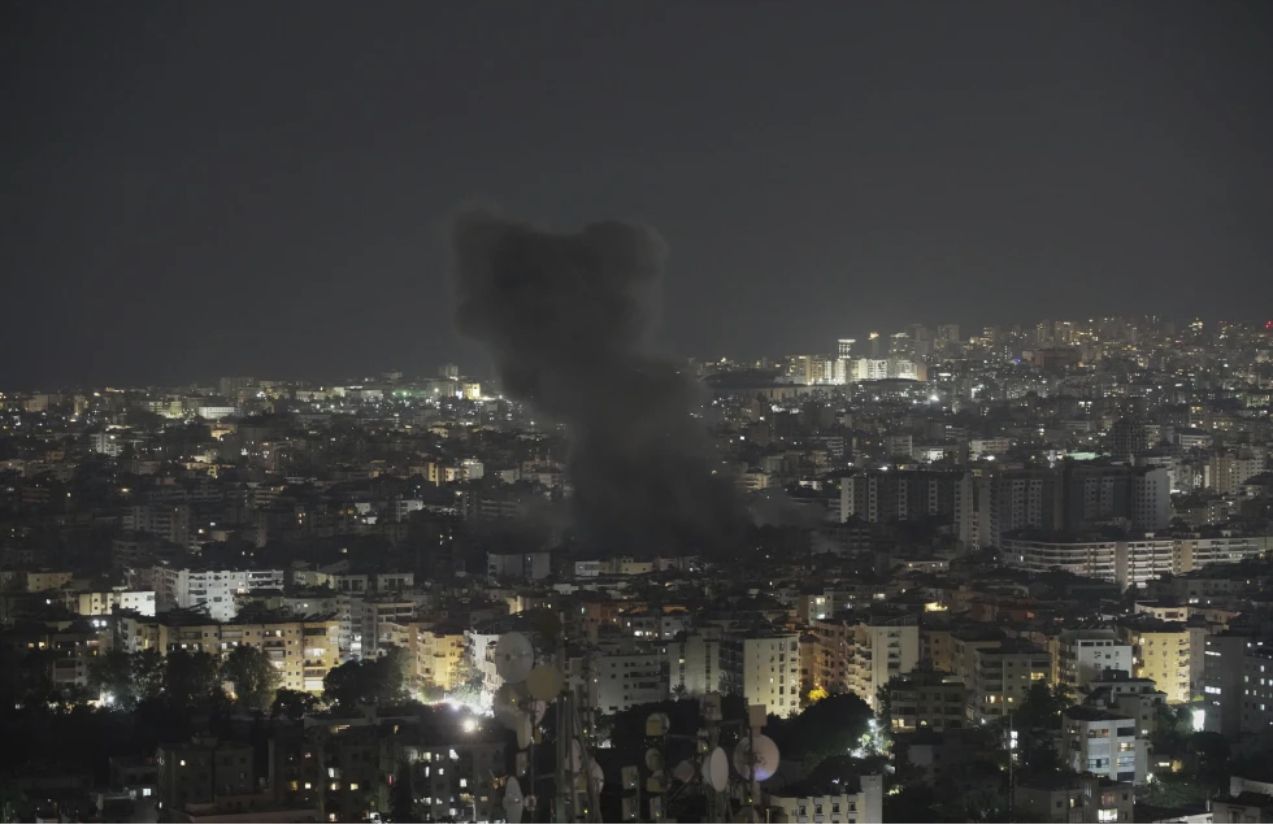The Israeli military launched a series of airstrikes Thursday on targets in the southern suburbs of Beirut, claiming the sites housed underground facilities used by Hezbollah for drone production. The operation came on the eve of the Muslim holiday of Eid al-Adha.
These strikes marked Israel’s first attack on the outskirts of the Lebanese capital in over a month, and the fourth since a ceasefire agreement ended the most recent war between Israel and Hezbollah last November.
In a preemptive message posted on social media platform X, the Israeli military warned that it would target eight buildings across four locations.
Since the ceasefire, Israel has continued near-daily strikes in southern and eastern Lebanon—operations that the Lebanese government considers violations of the agreement. Israeli officials, however, argue that the attacks are necessary to prevent Hezbollah from regrouping after a war that, they claim, dismantled much of the group’s leadership and arsenal.
In a statement, the Israeli army accused Hezbollah of attempting to manufacture “thousands of drones under the guidance and funding of Iranian terrorist organizations.” The statement added that Hezbollah had used drones extensively in past attacks on Israel and was now working to expand its drone industry in preparation for another potential conflict.
According to a Lebanese military official, who spoke on condition of anonymity, the Lebanese army had urged Israel to refrain from bombing the area, suggesting instead that Lebanese authorities be allowed to inspect the sites in accordance with the ceasefire’s verification mechanisms. The request was reportedly rejected by Israel, prompting Lebanese forces to withdraw from the area ahead of the strikes. Israeli officials have not yet commented on the matter.
A Hezbollah official, also speaking anonymously, denied the existence of any drone production facilities at the targeted locations. “The ceasefire agreement includes a mechanism for investigating such claims,” the official said. “Israel in general, and Netanyahu in particular, seem intent on continuing the war in the region.”
The conflict has already claimed the lives of over 4,000 people in Lebanon, including hundreds of civilians. Additionally, according to Lebanese government figures released in April, Israeli strikes since the ceasefire have killed another 190 people and wounded 485.
Hezbollah faces mounting pressure—both domestically and internationally—to surrender its remaining arsenal. However, the group maintains that it will not disarm until Israel halts its airstrikes and withdraws from five positions it still occupies along the southern border of Lebanon.

